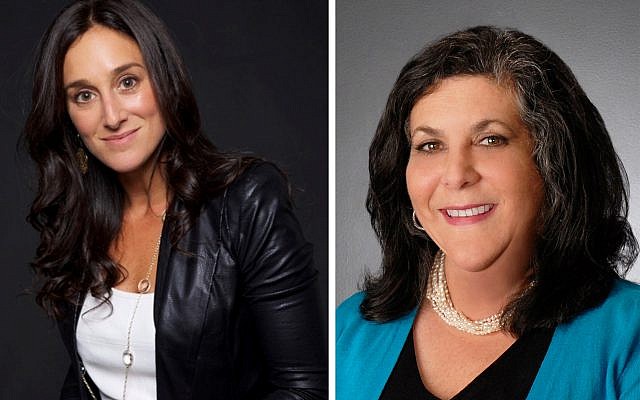Human Trafficking Is a Jewish Issue
You might think that the horrifying issue of human trafficking has nothing to do with the Atlanta Jewish community. But you would be wrong.

You might think that the horrifying issue of human trafficking has nothing to do with the Atlanta Jewish community. But you would be wrong, according to Lauren Hersh, a former domestic violence prosecutor and founder and national director of World Without Exploitation. The umbrella group of 140 organizations began more than two years ago to create a world where there’s no human trafficking or sexual exploitation.
Hersh will be the keynote speaker at a program next week sponsored by the Jewish Women’s Fund of Atlanta, “Human Trafficking: A Jewish Issue.”
The program will be held at 7:30 p.m. March 28 at Congregation B’nai Torah in Sandy Springs and is open to the public.
Hersh told the AJT that she will tell her audience how to “recognize sex trafficking in our own community and the effective ways to combat it, looking at it with a Jewish lens.” And it’s not just victims, she adds. “We must be concerned that those who exploit people can be Jewish, too.” Hersh isn’t talking only about sex buyers.
Human trafficking can be found in nail salons and in the hair-braiding, agricultural, custodial and hospitality industries, said Enid Draluck, a JWFA trustee and education chair. “Jewish women and girls can be participating by getting their nails done. We, as Jews, are business owners,” she said. “Do we know who comes to clean the buildings at night? We can’t turn a blind eye.”
Draluck, who helped train some 10,000 volunteers for the recent Super Bowl in Atlanta to look for signs of human trafficking, says she’s done research on how it affects the Jewish community. She thinks the timing of this program is particularly appropriate.
“It’s two weeks before Pesach,” she noted. “We were once slaves in Egypt. This is modern day slavery. Globally, there are more people enslaved today than since the time when Africans were brought to the United States. This is also happening in Israel.” JWFA provided a grant to an organization that managed to get a law passed in the Knesset last year that prohibits the consumption of prostitution.
“This is a Jewish issue,” Draluck emphasized. “People who think it isn’t are the same people who think there’s no domestic violence” in the Jewish community.
Draluck, who runs a private family foundation, says she works for causes that “elevate women and girls. I want to be a voice for those who don’t have a voice. There’s no one solution and the need is great.”
Girls and women in poverty are preponderantly victims of human trafficking, but red flags can be found everywhere, Hersh said. “I’ve seen girls recruited on mainstream social media,” she said.
While Hersh is in Atlanta, she will speak separately with students at The Weber School and the Atlanta Jewish Academy. “My most favorite thing to do is speak to young people,” she said. “They get it and they want to learn. Their immediate reaction is, what can I do to help? It’s so important to speak to young girls and boys. Boys get it that buying sex shouldn’t be normalized. They understand the inherent inequality.”
Some of the signs to watch for include girls who are less appropriately dressed than before, youth who are overly tired or have unexplained absences in class, students who are withdrawn or distracted, those who brag about making or having lots of money, have acquired new tattoos, or have older boyfriends or new friends with different lifestyles.
Hersh said she was “always interested in combating gender violence. I was raised in a family where the notion of helping other people and fighting for what you believe in was the norm. This comes, in large part, from the Jewish values I received at home.”
Also speaking at the March 28 event will be Ouleye Ndoye Warnock, senior human trafficking fellow for the Office of Atlanta Mayor Keisha Lance Bottoms. “This is the first time a mayor’s office has appointed someone to this position,” Draluck said.
To report signs of sex trafficking, call 1-888-373-7888, text “HELP” or “INFO”: 233733. For more information, go to www.jwfatlanta.org/trafficking.



comments